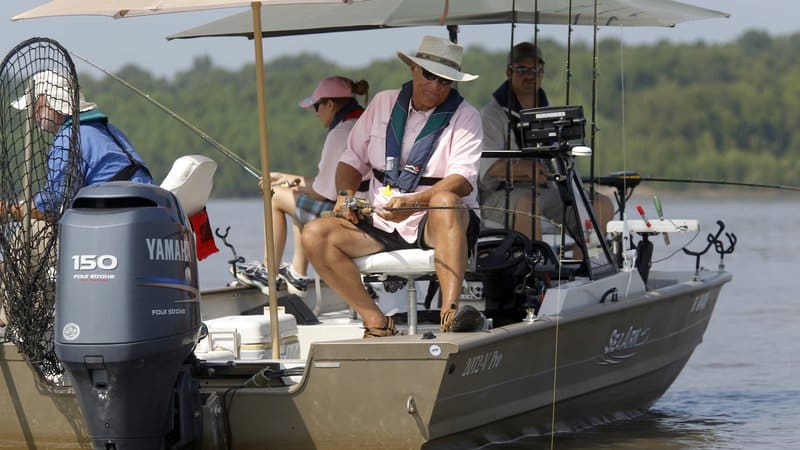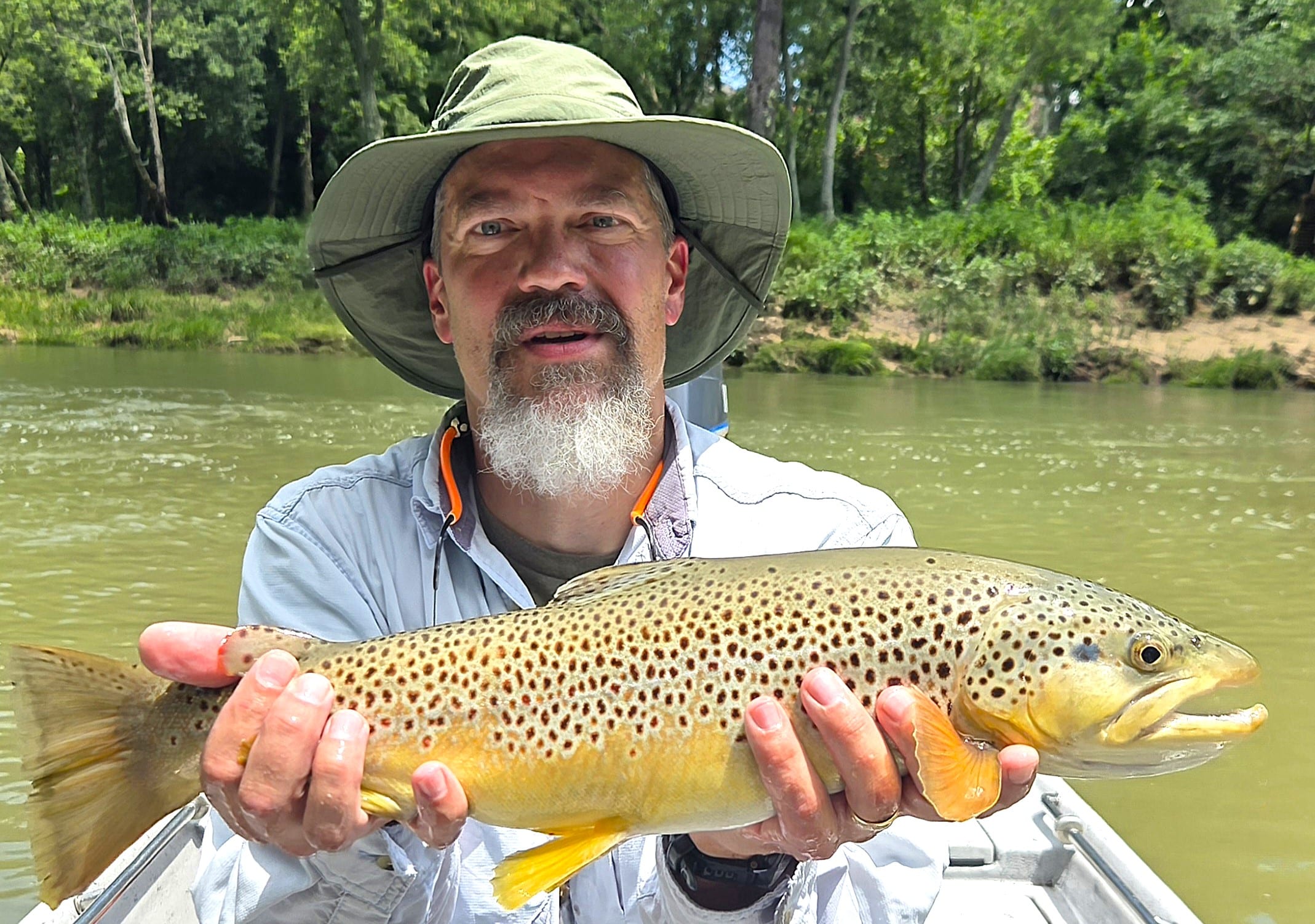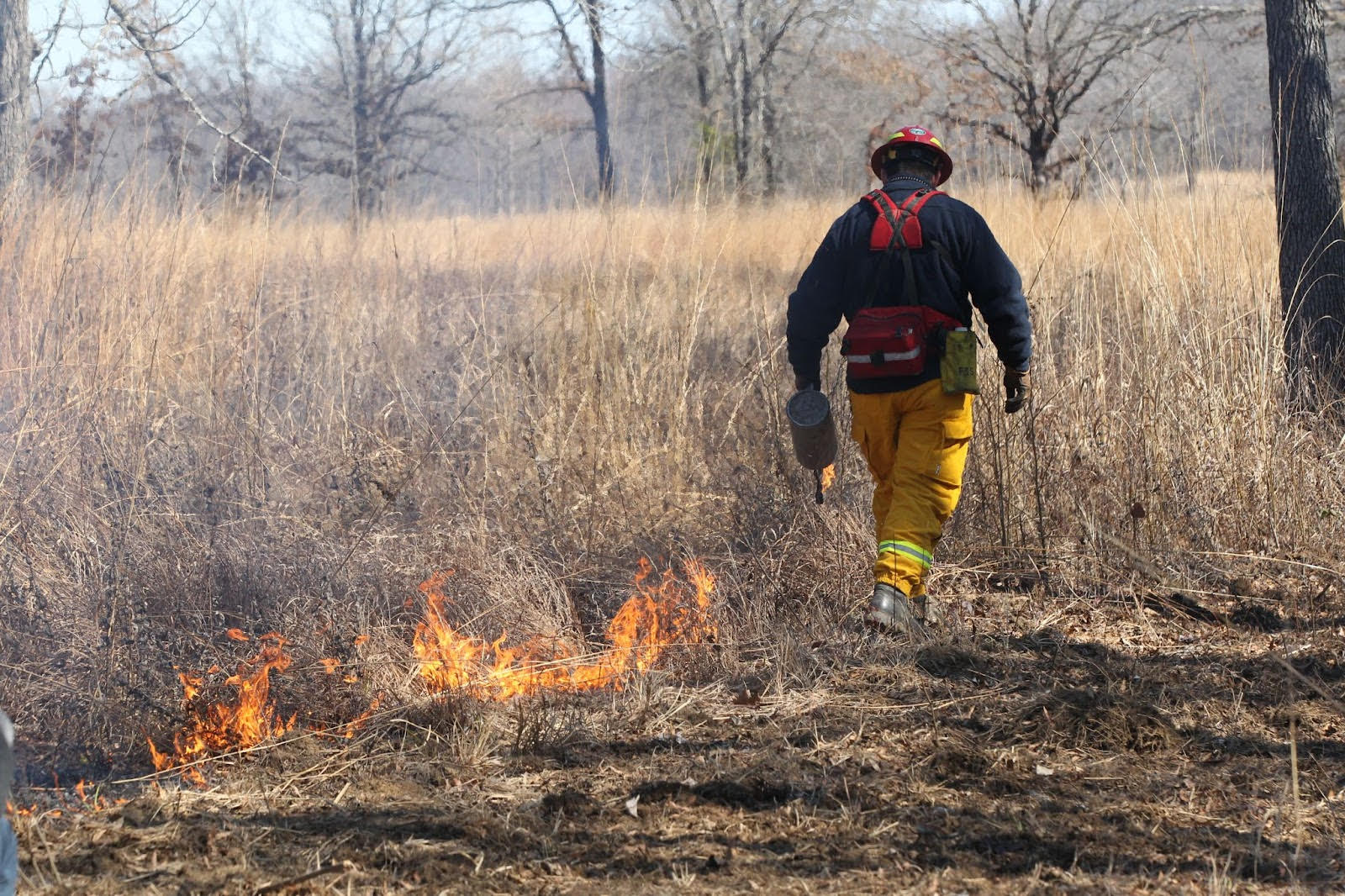Anglers and boaters advised to use caution during summer heat
ON 07-20-2022

July 20, 2022
Randy Zellers
Assistant Chief of Communications
LITTLE ROCK – Temperatures hovering in the triple digits may have you yearning for a day on the water. Whether you’re catching some deep brush pile crappie, catching big river catfish or just catching some rays on a pleasure boat, it’s important to keep in mind that too much of a good thing can be damaging to your health.
Overexposure to the sun and indulging in too many alcoholic beverages top the list of dangers that can turn an otherwise relaxing trip to the lake into a nightmare. Each year, wildlife officers and other first responders are called to boat ramps and banks throughout the state in response to someone who’s had a little too much of either.
Most people remember running around during the heat of summer in a bathing suit or T-shirt and shorts enjoying that “healthy tan” as a side effect of a day on the lake. Now, we know better. Not only can too much sun cause a nasty sunburn, but it can cause long-term damage to the skin and even skin cancer. Here are a few tips from Capt. Tod Johnson who works in the AGFC’s Hot Springs Regional Office and spends more than his fair share of days on the water.
We all scream for sunscreen
The most obvious thing anglers and boaters can do is to remember the sunscreen. Don’t settle for suntan lotion or suntan oils if you plan to be out for more than an hour, as well.
“There are plenty of sunscreen options, with different scents and gimmicks, but the main thing to pay attention to is the sun protection factor,” Johnson said. “The higher the SPF number.”
A sunscreen’s rating doesn’t stand for the number of minutes it’s good for, instead it indicates the amount of UV radiation the liquid shields the skin from. An SPF of 30 allows 1/30th of the sun’s radiation through, meaning it would take 30 times longer to receive the same effects as unprotected skin, but that’s only if it stayed on. Even water-resistant sunscreens will only last for a couple of hours before they begin to deteriorate from moisture, be it lakewater or perspiration.
“It’s just good practice to reapply every couple of hours,” Johnson said.
Bring your own shade
One easy way to beat the blisters is to stay in the shadows. On some rivers and lakes, there may be plenty of trees overhanging the shore to offer some shelter, but if you know you’re going to be fishing or boating out in the open, invest in a sunbrella.
“I see a lot more boats out there with canopies or tops nowadays,” Johnson said. “Even the bass boats we patrol in all day have retractable canopies to block the sun. Not only does it help with exposure, it feels a little cooler than if you’re just sitting in the sunlight.”
Dress for the occasion
A tank top or T-shirt may have been common years ago, but many anglers you see today cover up a bit more.
“We see a lot of fishermen wearing thin, long-sleeved shirts made of UV-protective materials.” Johnson said. “Some die-hard anglers have even adopted wearing lightweight facemasks and gloves to prevent too much exposure to the sun.”
Johnson says people wanting to cover up should pay attention to the UV protection rating of the clothes they choose for days on the water.
“A plain cotton shirt doesn’t block all the UV rays, but new materials that do protect you are lightweight and comfortable enough to wear all day,” Johnson said.
Dodge high noon
Anglers can beat the heat and the sunburn if they simply avoid those hours when the sun is beating down from straight overhead. Summer fishing often is best during the first few hours of daylight and dusk, leaving a lot of time to bake in the sun between. Instead of slogging through a sweaty day on the water, get to the lake early and catch up on some naptime on shore once the sun is high. If you’re not an early bird, head out an hour or so before sunset and enjoy that end of the fishing day. Just be sure your navigation lights work properly so you can make your way back to the ramp safely if the fishing picks up and you stay out a bit later than planned.
Hydrate with real water
Sun not only stings the skin, but it saps your body of moisture, which can cause dehydration. Sugary or carbonated drinks can magnify the drying effect of the exposure to UV rays. It’s always smart to have some extra drinking water nearby and remember to take an occasional drink, even if you don’t feel all that thirsty.
“Alcohol isn’t something to rehydrate with, either,” Johnson said. “A lot of people may think a cold beer or alcoholic beverage will work, but alcohol actually reduces the amount of water that gets into their cells.”
Aside from contributing to dehydration, alcohol impairs judgment and can cause very dangerous situations for boaters and their passengers. The effects of alcohol are more potent when out in the summer heat because of natural stress factors like the sun, wind and waves rocking of the boat.
“A person who might have a drink or two at home and not feel anything may discover that same amount of alcohol really impairs their response time, balance and judgment when they combine it with the common surroundings of summer boating.”
This summer, be safe. Take the simple steps that could save your life. Summer heat and alcohol are such mundane things that their dangers are easily overlooked. Bring plenty of water, wear sunscreen or protective clothing and pay attention to what your body is telling you. If you decide to drink, be aware of the added effects of the sun and don’t operate the boat. A designated driver is just as important on a boat as he or she is in a car.
Recent News

Arkansas Wildlife Weekly Fishing Report
Jul. 3, 2025
Subscribe to Our Weekly Newsletter E-mails
Don’t miss another issue. Sign up now to receive the AGFC Wildlife Weekly Newsletter in your mailbox every Wednesday afternoon (Waterfowl Reports are published weekly during waterfowl season and periodically outside the season). Fishing Reports arrive on Thursdays. Fill in the following fields and hit submit. Thanks, and welcome!

